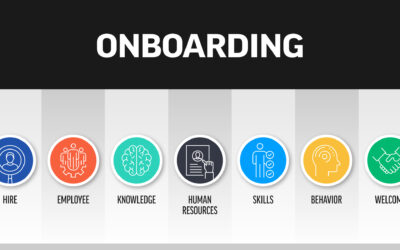The 2024-25 legislative session in New Jersey is past its midpoint, and PIANJ is tracking numerous bills that could impact the insurance industry significantly. From motor vehicle liability to home improvement contracts and personal injury protection, these proposed laws could reshape the regulatory landscape for insurers, agents and policyholders across the state.
Here’s a breakdown of the key bills PIANJ is following and what they could mean for agents, brokers and policyholders.
PIANJ priority bills
A-4054/S-2993—would prohibit motor vehicle liability policies from restricting full payment of recovery amounts.
This bill would prohibit auto insurers using step-down provisions in personal auto policies which limit the amount covered people can recover under their policy.
Why it matters: This would provide greater protection for insured individuals and prevent insurers from imposing restrictions that limit claims recovery. However, it would have an adverse impact on insurance premiums.
Read more about it in PIA’s step-down clause testimony.
S-2292/A-3359—would require registration and insurance for low-speed electric bicycles and scooters.
This bill would require electric bikes and e-scooters to be registered with the Motor Vehicle Commission and insured.
Why it matters: With the rise in popularity of these vehicles, the proposed regulation could impact both riders and insurers by creating a new category of required coverage.
S-3949—would extend personal injury protection benefits to bicyclists and scooter riders.
This bill would make individuals operating bicycles, electric bicycles or electric scooters eligible for PIP benefits in the event of an accident. It also would mandate crash reports for accidents involving these vehicles.
Why it matters: Expanding PIP eligibility could lead to increased claims costs for insurers while offering greater financial protection for riders.
Auto and transportation insurance
A-4685/S-2999—would establish the Peer-to-Peer Car Sharing Act
This bill would set regulatory guidelines for peer-to-peer car-sharing platforms, similar to how ride-sharing services are regulated.
Why it matters: With the growing popularity of car-sharing services, this legislation could introduce new insurance requirements for individuals who rent out their personal vehicles.
Homeowners and liability insurance
A-3961/S-2627—would limit home improvement contracts with full indemnification provisions.
This legislation would restrict home improvement contractors from including full indemnification clauses in contracts, preventing homeowners from assuming excessive liability.
Why it matters: This could lead to fairer agreements for homeowners while shifting some risks back onto contractors.
S-1709/A-4394—would provide liability immunity for certain beach owners
This bill would clarify that beach owners and lessees are not responsible for keeping beaches safe or warning of hazards. It also would grant immunity from liability in certain cases for injuries occurring on a beach or in adjacent waters.
Why it matters: This measure could help protect beach communities and municipalities from costly liability claims.
Personal injury protection and consumer protections
S-1473—would increase PIP coverage for basic auto insurance policies
This bill would raise the minimum PIP coverage from $15,000 to $50,000 for basic auto insurance policies and mandates a $50,000 minimum for standard auto policies.
Why it matters: While this bill could increase premiums, it also would provide greater financial protection for injured drivers and passengers.
S-2894/A-3303—would require certified mail notices for insurance cancellations and nonrenewals.
Under this proposal, insurers would need to send cancellation or nonrenewal notices for auto and homeowners policies via certified mail, return receipt requested.
Why it matters: This bill could improve consumer protections by ensuring policyholders receive proper notice before a policy is canceled or nonrenewed.
S-2944/A-2944—would ban education, occupation and credit score as rating factors for auto insurance.
This bill would prohibit insurers from using a person’s education level, job title or credit score when determining auto insurance rates.
Why it matters: This could lead to fairer pricing for consumers but it could also result in premium shifts as insurers adjust their rating models.
S-3717—would prevent auto insurers from raising rates for no-fault accidents
This bill would prohibit insurers from using underwriting rules to increase rates for drivers who were not at fault in an accident.
Why it matters: This bill would ensure that responsible drivers aren’t penalized for accidents they didn’t cause, promoting fairness in rate-setting.
Additional industry regulations
A-5254—would establish the Car Insurance Reduction Act.
This comprehensive bill would modify laws related to auto insurers’ underwriting, rate calculations and reporting requirements.
Why it matters: If enacted, this would reshape how auto insurance rates are set and potentially lead to cost reductions for policyholders.
S-1299/A-608—would require alcohol liability insurance for certain liquor license holders.
This bill would mandate that certain businesses with liquor licenses carry alcoholic beverage liability insurance.
Why it matters: This would help ensure that businesses serving alcohol are financially prepared to cover liability claims related to alcohol-related incidents.
S-4114—would require an informational pamphlet for e-bike and e-scooter riders.
This legislation would direct the Motor Vehicle Commission to develop a pamphlet on the operation of electric bicycles and scooters, which certain food delivery companies would be required to distribute.
Why it matters: As e-bikes and e-scooters become more common in urban areas, this bill could improve rider safety awareness and education.

Bradford J. Lachut, Esq.
Bradford J. Lachut, Esq., joined PIA as government affairs counsel for the Government & Industry Affairs Department in 2012 and then, after a four-month leave, he returned to the association in 2018 as director of government & industry affairs responsible for all legal, government relations and insurance industry liaison programs for the five state associations. Prior to PIA, Brad worked as an attorney for Steven J. Baum PC, in Amherst, and as an associate attorney for the law office of James Morris in Buffalo. He also spent time serving as senior manager of government affairs as the Buffalo Niagara Partnership, a chamber of commerce serving the Buffalo, N.Y., region, his hometown. He received his juris doctorate from Buffalo Law School and his Bachelor of Science degree in Government and Politics from Utica College, Utica, N.Y. Brad is an active Mason and Shriner.






